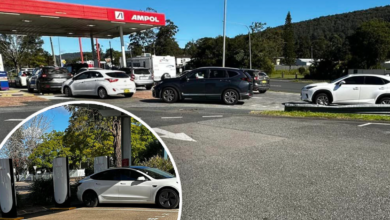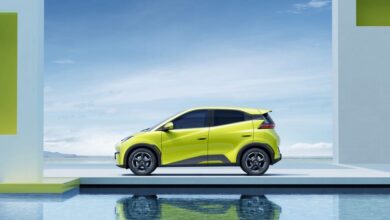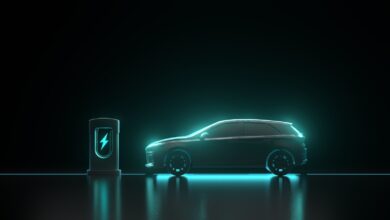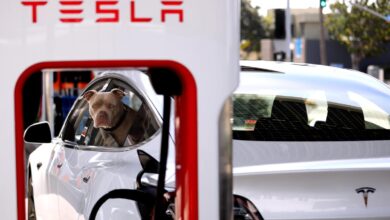Bad News for Rivian Investors

According to a recent survey there’s even more reason to be concerned about the U.S. electric vehicle market.
Unless you’ve been hiding from the news, you’ve likely heard that electric vehicle (EVs) sales have slowed to a crawl in the U.S. market. Among the concerns are the lack of affordable options and lack of sufficient charging infrastructure.
But according to a recent survey by McKinsey & Co., there’s even worse news for investors of companies such as Rivian Automotive (RIVN -2.07%).
What’s going on?
McKinsey, as a part of its biennial survey, asked roughly 200 questions to more than 30,000 consumers in 15 countries that comprise roughly 80% of global sales volume. And what the survey found should be of concern to EV investors.
The survey found that more than 4 out of 10 owners of EVs in the U.S. are likely to buy a combustion engine for their next car purchase. That’s a much higher rate than the global 29% that said they’re planning to reverse course from their EV purchase.
Those results were a surprise to some: “I didn’t expect that,” Philipp Kampshoff, leader of the consulting firm’s Center for Future Mobility, told Automotive News. “I thought, ‘Once an EV buyer, always an EV buyer.'”
The primary concern from respondents was the lack of public charging infrastructure, but other concerns include the high costs of ownership and difficulty in taking long-distance drives. It’s true that public charging infrastructure has been slower than anticipated, with only eight stations operational from the creation of the National Electric Vehicle Infrastructure program two years ago. Worse yet, only 23 states have dished out financing from the $5 billion federal program.
In addition to the survey finding that more than 40% of U.S. consumers wanted to switch back from EVs, 21% of global respondents do not ever want to switch to an EV, again citing charging infrastructure concerns.
While those statistics should be concerning to EV investors, the news wasn’t all bad. The survey also found that overall consumers are still slightly more likely to consider EVs in the future. More specifically, 38% of non-EV owners say they anticipate a hybrid or full EV to be their next vehicle, which was a smidge higher than the 37% who anticipated it would be their next vehicle from 2022’s survey.
Down the road
Sure, the news that many EV owners would prefer to swap back to combustion engines isn’t a good sign, but Rivian can only control what it can control. That means the company’s focus remains on refreshing its current R1 platform — which it recently completed — and preparing for the launch of its upcoming R2 crossover in 2026.
In fact, Rivian has even accelerated its launch schedule by planning to bring initial production to its Illinois facility, rather than waiting for the completion of its factory in Georgia. It’s a move that will soak up excess capacity in its original facility and save the company over $2.25 billion. The move is pretty much a no-brainer for a company that needs to launch its more competitively priced vehicle sooner rather than later.
Ultimately, the survey’s findings are a bit troubling and the latest sign that the U.S. EV market is going to grow more slowly than hoped.
Daniel Miller has no position in any of the stocks mentioned. The Motley Fool has no position in any of the stocks mentioned. The Motley Fool has a disclosure policy.



